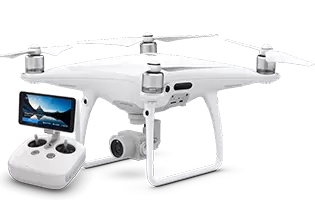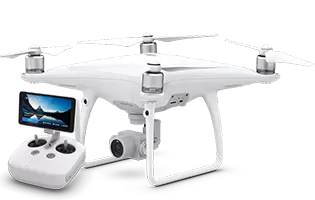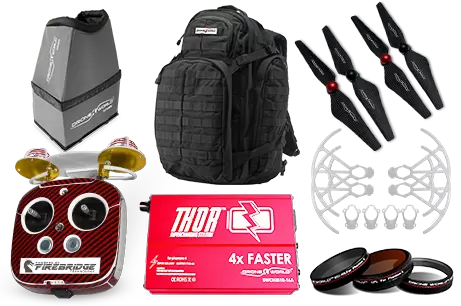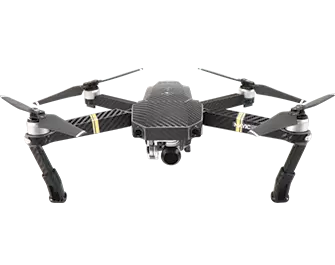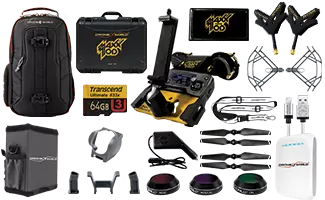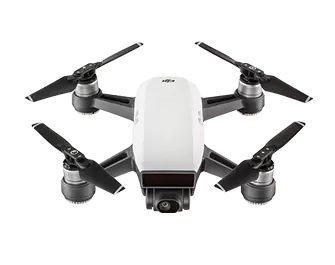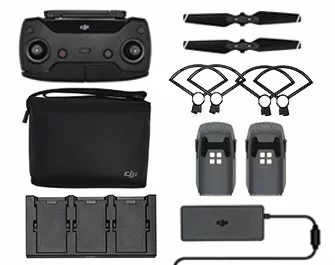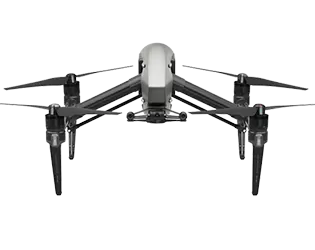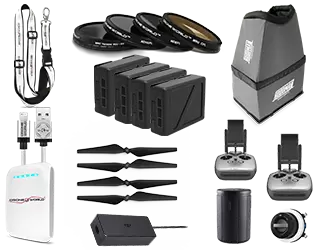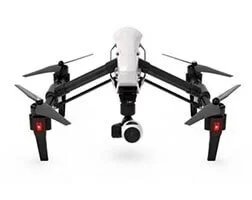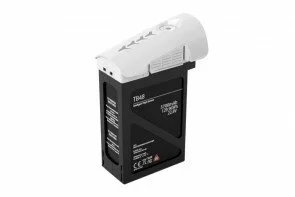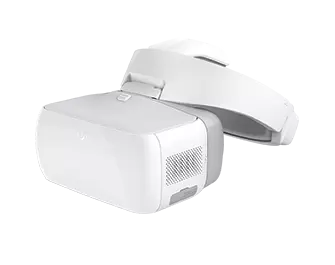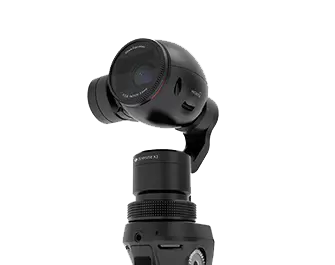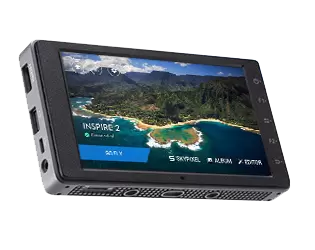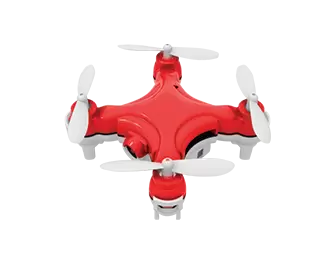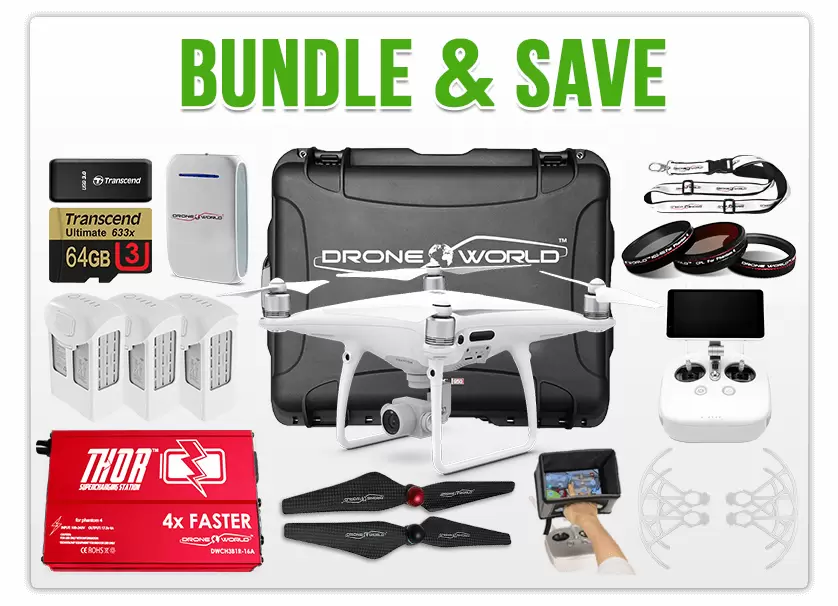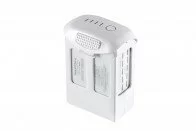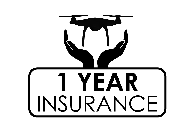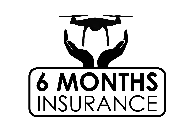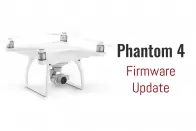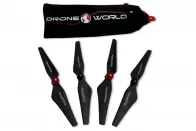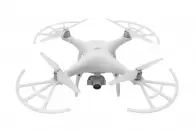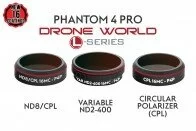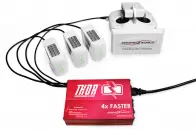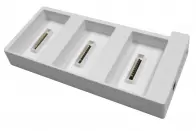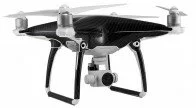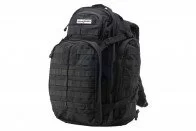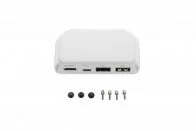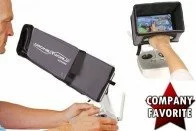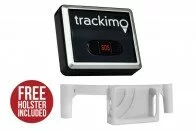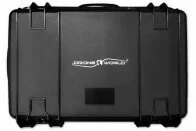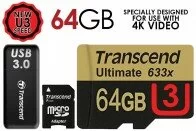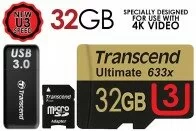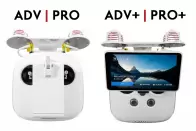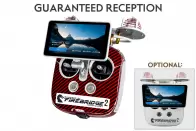- Largest DJI Kit Dealer in the USA with Full Warranties
- Caution: Drones on Amazon and eBay may not have warranties
- +FREE FPV Mini Drone Included for Limited Time Only.
- Kit Includes: Phantom 4 Pro, Compact Backpack (New 2016 Black Nylon Model), iPhone Cable, & Free DW Remote Lanyard!
- Includes 1 Intelligent Battery.
- Avoid obstacles automatically (4 Directions + downward sensors). Track moving subjects automatically using ActiveTrack. TapFly lets you fly with a tap of the finger.
- Smart Return Home allows the Phantom to avoid obstacles as it returns home.
- 30 minute maximum fight time, maximum range of 4.3mi (7km). Maximum speed of 45mph (20m/s).
- OPTIONAL PRO+ MODEL: Plus Includes 5.5" 1080p screen built-in on the remote controller for quick setup and no other device needed. This model also includes HDMI out and micro sd slot on back of remote.
Features
Details
|
|
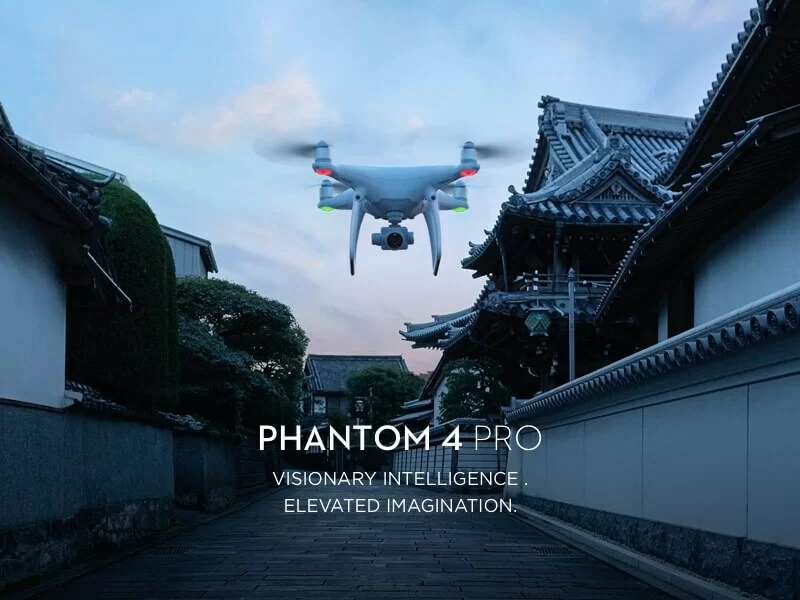 |
|
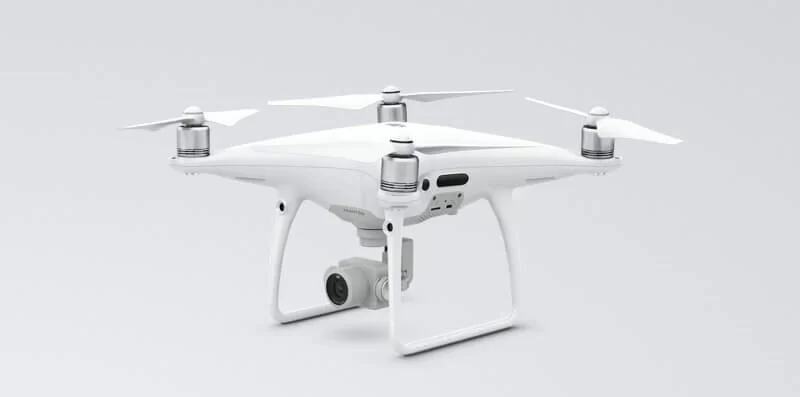

|
|
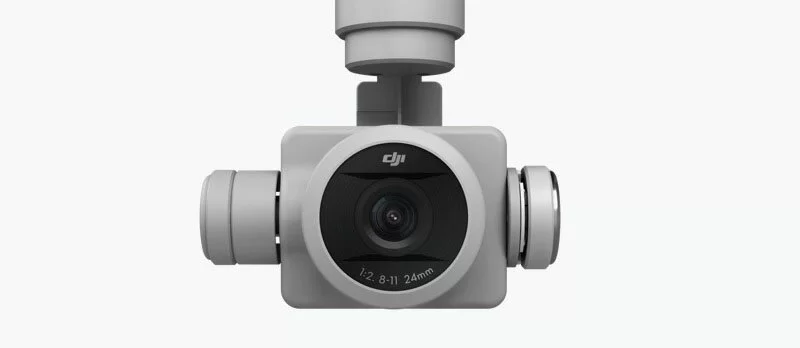
|
|
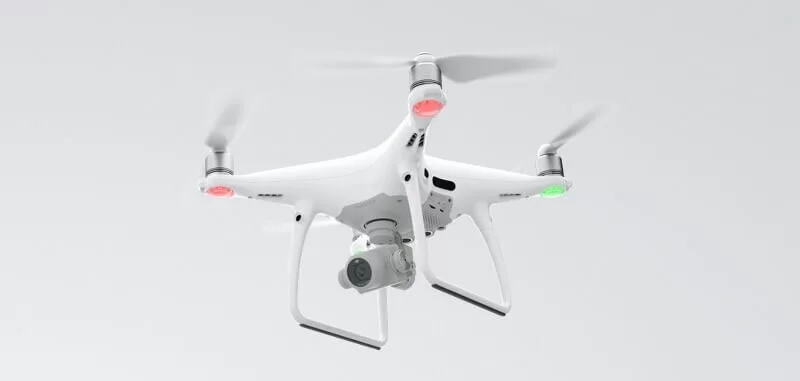
|
|
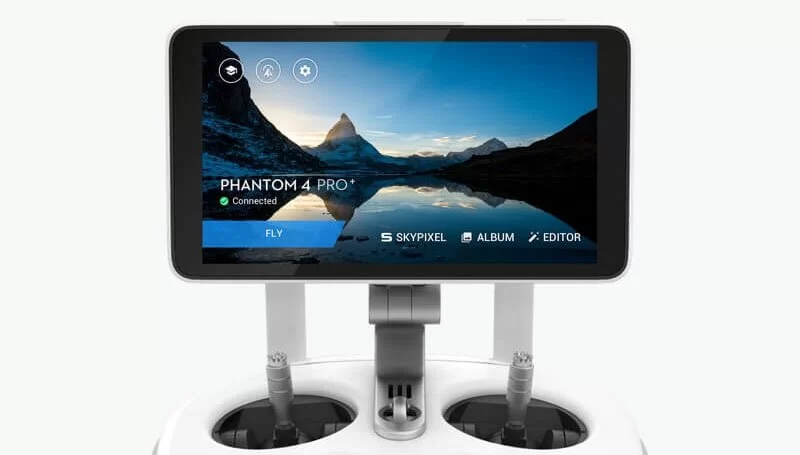
|
|
 |
|

|
|
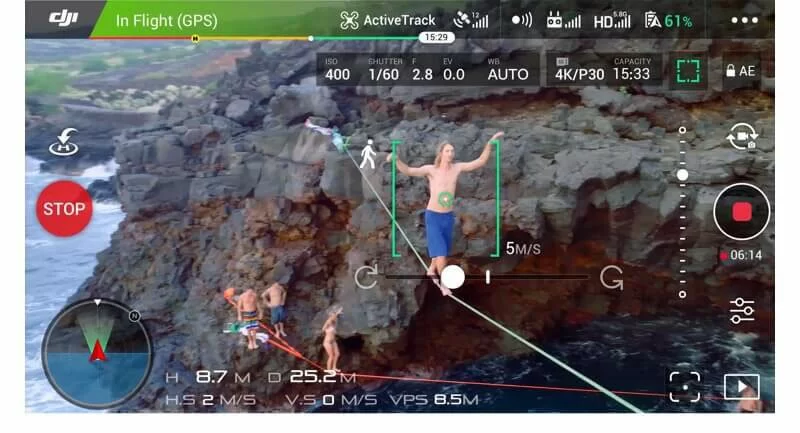
|
|
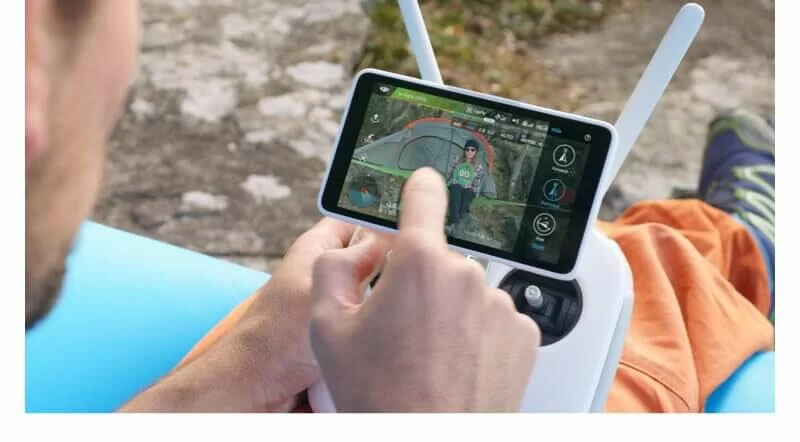
|
|

|
|

|
|
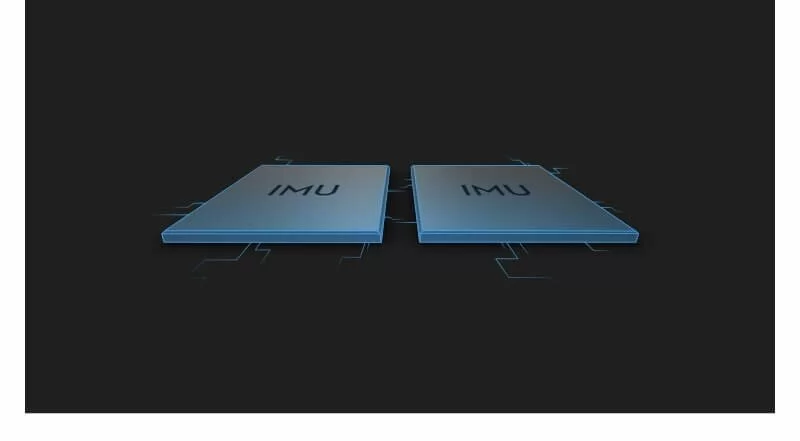
|
|
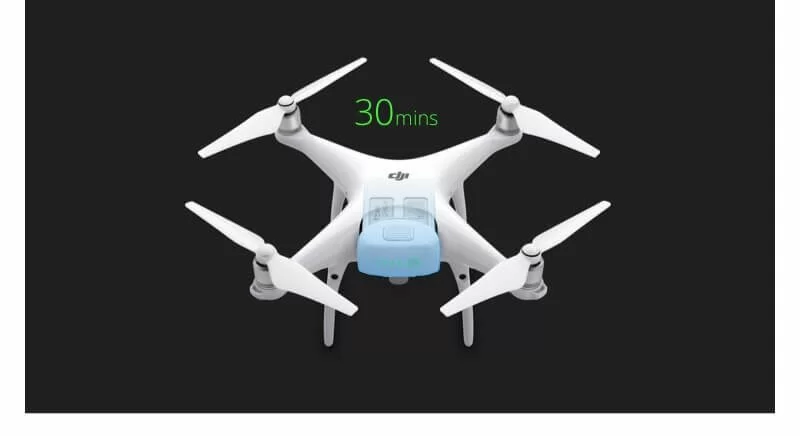
|
|
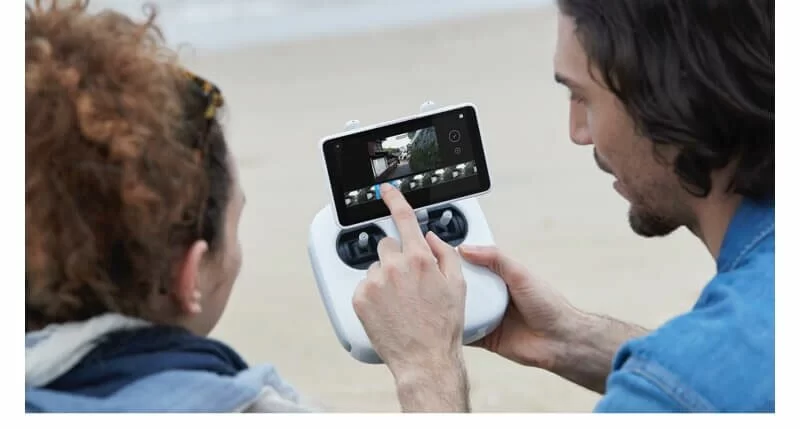
|
Specs
AIRCRAFT
| Weight (Battery & Propellers Included) | 1388 g |
|---|---|
| Diagonal Size (Propellers Excluded) | 350 mm |
| Max Ascent Speed | S-mode: 6 m/s; P-mode: 5 m/s |
| Max Descent Speed | S-mode: 4 m/s; P-mode: 3 m/s |
| Max Speed | 45 mph (72 kph) (S-mode); 36 mph (58 kph) (A-mode); 31 mph (50 kph) (P-mode) |
| Max Tilt Angle | 42° (S-mode); 35° (A-mode); 25° (P-mode) |
| Max Angular Speed | 250°/s (S-mode); 150°/s (A-mode) |
| Max Service Ceiling Above Sea Level | 19685 ft (6000 m) |
| Max Flight Time | Approx. 30 minutes |
| Operating Temperature | 32° to 104° F ( 0° to 40° C) |
| Satellite Positioning Systems | GPS/GLONASS |
| GPS Hover Accuracy Range | Vertical: ±0.1 m (With Vision Positioning); ±0.5 m (With GPS Positioning) Horizontal: ±0.3 m (With Vision Positioning); ±1.5 m (With GPS Positioning) |
VISION SYSTEM
| Velocity Range | ≤31 mph (50 kph) at 6.6 ft (2 m) above ground |
|---|---|
| Altitude Range | 0 – 33 ft (0 – 10 m) |
| Operating Range | 0 – 33 ft (0 – 10 m) |
| Obstacle Sensory Range | 2 – 98 ft (0.7 – 30 m) |
| FOV | ±60°(Horizontal), ±54°(Vertical) |
| Detection Frequency | 10Hz |
| Operating Environment | Surfaces with clear patterns and adequate lighting (> 15 lux) |
CAMERA
| Sensor | 1’’ CMOS; Effective pixels: 20M |
|---|---|
| Lens | FOV (Field of View) 84°, 8.8 mm / 24 mm (35 mm format equivalent), f/2.8 - f/11. auto focus at 1 m - ∞ |
| ISO Range | Video: 100 - 3200 (Auto); 100 - 6400 (Manual) Photo: 100 - 3200 (Auto); 100- 12800 (Manual) |
| Mechanical Shutter | 8 - 1/2000 s |
| Electronic Shutter | 8 - 1/8000 s |
| Max Image Size | 3:2 Aspect Ratio: 5472 × 3648 4:3 Aspect Ratio: 4864 × 3648 16:9 Aspect Ratio: 5472 × 3078 |
| PIV Image Size | 16:9 Aspect Ratio: ・5248 × 2952(3840 × 2160 24/25/30p,2720 × 1530 24/25/30p, 1920 × 1080 24/25/30p, 1280 × 720 24/25/30p) ・3840 × 2160(3840 × 2160 48/50p,2720 × 1530 48/50p, 1920 × 1080 48/50/60p,1280 × 720 48/50/60p) 17:9 Aspect Ratio: ・4896 × 2592 (4096 × 2160 24/25/30p) ・4096 × 2160 (4096 × 2160 48/50p) |
| Still Photography Modes | Single Shot Burst Shooting: 3/5/7/10/14 frames Auto Exposure Bracketing (AEB): 3/5 bracketed frames at 0.7EV Bias Interval: 2/3/5/7/10/15/30/60 s |
| Video Recording Modes | H.265 ・C4K:4096×2160 24/25/30p @100Mbps ・4K:3840×2160 24/25/30p @100Mbps ・2.7K:2720×1530 24/25/30p @65Mbps 2720×1530 48/50/60p @80Mbps ・FHD:1920×1080 24/25/30p @50Mbps 1920×1080 48/50/60p @65Mbps 1280×720 48/50/60p @35Mbps H.264 ・C4K:4096×2160 24/25/30/48/50/60p @100Mbps ・4K:3840×2160 24/25/30/48/50/60p @100Mbps ・2.7K:2720×1530 24/25/30p @80Mbps 2720×1530 48/50/60p @100Mbps ・FHD:1920×1080 24/25/30p @60Mbps 1920×1080 48/50/60/120p @80Mbps ・HD: 1280×720 24/25/30p @30Mbps 1280×720 48/50/60/120p @45Mbps |
| Video Storage Bitrate | 100 Mbps |
| Supported File Systems | FAT32 (≤ 32 GB); exFAT (> 32 GB) |
| Photo | JPEG, DNG (RAW), JPEG + RAW |
| Video | MP4/MOV (AVC/H.264;HEVC/H.265) |
| Supported SD Cards | Micro SD, Max Capacity: 128GB. Write speed ≥15MB/s, class 10 or UHS-1 rating required |
| Operating Temperature | 32° to 104° F (0° to 40° C) |
CHARGER
| Voltage | 17.4 V |
|---|---|
| Rated Power | 100 W |
GIMBAL
| Stabilization | 3-axis (pitch, roll, yaw) |
|---|---|
| Controllable Range | Pitch: -90° to +30° |
| Max Controllable Angular Speed | Pitch: 90°/s |
| Angular Control Accuracy | ±0.03° |
TOF SENSING SYSTEM
| Obstacle Sensory Range | 0.6 – 23 ft (0.2 – 7 m) |
|---|---|
| FOV | ±35° (Horizontal), ±10° (Vertical) |
| Detection Frequency | 10 Hz |
| Operating Environment | Surface with diffuse reflection material, and reflectivity > 8% (such as wall, trees, humans, etc.) |
REMOTE CONTROLLER
| Operating Frequency | 2.400 - 2.483 GHz and 5.725 - 5.850 GHz |
|---|---|
| Max Transmission Distance | FCC Compliant: 4.3mi (7km); CE Compliant: 2.2mi (3.5km) (Unobstructed, free of interference) |
| Operating Temperature | 32° to 104° F (0° to 40° C) |
| Battery | 6000mAh LiPo 2S |
| Transmitter Power (EIRP) | 2.400 GHz - 2.483 GHz FCC: 23 dBm; CE: 17 dBm 5.725 GHz - 5.850 GHz FCC: 30 dBm; CE: 14 dBm |
| Operating Voltage | 1.2 A @7.4 V |
| Video Output Port | GL300E: USB GL300F: HDMI,USB |
| Mobile Device Holder | GL300E: Tablets and smart phones GL300F: Built-in display device (5.5 inch screen, 1920×1080, 1000 cd/m2, Android system, 4G RAM+16G ROM) |
INTELLIGENT FLIGHT BATTERY (PH4-5870MAH-15.2V)
| Capacity | 5870 mAh |
|---|---|
| Voltage | 15.2 V |
| Battery Type | LiPo 4S |
| Energy | 89.2 Wh |
| Net Weight | 468 g |
| Charging Temperature Range | 14° to 104° F (-10° to 40° C) |
| Max Charging Power | 100 W |
What’s Included
Reviews
Customer Reviews (3)
- Phantom 4 pro+ Review by Kglass
-
Value Quality Price
I love my phantom 4 (Posted on 7/4/2017) - Love it Review by Gman
-
Price Value Quality
I love it! (Posted on 3/15/2017) - Phantom 4 Pro Reveiw Review by Tim L
-
Price Value Quality
I am absolutely happy with my P4P what an amazing quadradcopter! The shots it has are incredible! I will leave a video link! would definitely order from DW again, as they are very good with everything and customer service was a breeze! they also pack the packages with care! Thank you drone world! (Posted on 3/9/2017)
Write Your Own Review
Videos
Q & A
Product Questions
Upgrades
PRODUCT
1. What are the main differences between the Phantom 4 and Phantom 4 Pro?
The Phantom 4 Pro redefines the iconic Phantom series, bringing imaging and intelligence to new heights. Its uprated camera shoots 4K/60fps at a bitrate of 100Mbps and stills up to 20-megapixels, creating dramatically better images. The FlightAutonomy system adds dual rear vision sensors and two Time of Flight range imaging cameras for a total of 5 directions of obstacle sensing with a range of up to 30m in all directions. The upgraded Lightbridge HD video transmission system offers an extended maximum transmission range of 4.3mi (7km) and also enables you to switch between 2.4GHz and 5.8GHz. It can also be used with an optional integrated monitor for even more reliable transmission. Operators are also further empowered with a new suite of ActiveTrack and TapFly functions. The aircraft’s Intelligent Flight Battery also have increased capacity by 520mAh to enable an extended flight time of 30 minutes.
CAMERA
1. What is new about the Phantom 4 Pro’s camera?
The Phantom 4 Pro camera is equipped with a 1-inch 20-megapixel sensor and has a manually adjustable aperture from F2.8 to F11. It also supports auto focus by half-pressing the shutter button, and has a focus range, from 1m to infinity. Always refocus before capturing additional shots in the event that the subject has moved beyond the focus point. Focus at infinity if the subject is over 98ft (30m) away. Refocusing is also needed when switching from close shots to long shots during recording.
2. What advantages does the Phantom 4 Pro have for shooting video?
The Phantom 4 Pro is able to record UHD 4K (4096X2160) at 60fps, at a maximum bitrate of 100Mbps using the H.264 codec and also supports H.265. It also allows you to capture still images while filming. The Phantom 4 Pro camera’s sensor is also larger than before, ensuring clearer images.
3. What is the resolution and format of the photos captured while recording video?
Photos will be captured as JPEG in the same resolution as the video recording.
4. What is the advantage using the new H.265 video format?
H.265 retains 50% more information than H.264, creating more detailed and vivid images.
5. What’s the benefit of having a mechanical shutter?
An electronic shutter may cause artifacts and distortion, such as jello, when shooting fast moving objects. A mechanical shutter prevents this and guarantees a high-quality image.
6. Does the Phantom 4 Pro support focus?
Tap a point on the display to focus at that point after switching from metering to focus modes. Auto focus can also be triggered by half-pressing the shutter button, before fully pressing the shutter to capture an image. Focus can be set between 1m and infinity.
7. What are the main features of the Phantom 4 Pro camera lens?
The Phantom 4 Pro uses a brand new camera lens optimized for aerial imaging, with an aperture range from F2.8 to F11 and a 24mm equivalent focal length. It’s equipped with a mechanical shutter and adjustable aperture range, with auto focus support.
OBSTACLE SENSING SYSTEM
1. When do the infrared sensing system work during flight?
Only in Beginner mode and Tripod mode
2. How do the infrared sensing system work?
Available in Beginner Mode and Tripod Mode only, the infrared sensing system has a sensing field with a 70° angle horizontally and 20° angle vertically. The radiated infrared light is reflected back by obstacles, allowing the sensors to “see” them at a distance of up to 23ft (7m) by calculating the difference in projection and reflection times and using this information to create a 3D model about the environment and obstacles in it.
3. What improvements have been made to the Phantom 4 Pro’s obstacle sensing system?
Phantom 4 Pro’s maximum front obstacle sensing range has been extended to 98ft (30m), with the rear sensing system sharing the same capability. Additionally, the Phantom 4 Pro is equipped with infrared sensors on both sides of the aircraft, precisely detecting the distance between the aircraft and obstacles within a range of up to 23ft (7m).
4. Is there any difference between the front and rear obstacle sensing systems?
No.
REMOTE CONTROLLER
1. Are the Phantom 4 and Phantom 4 Pro remote controllers compatible with each other?
Currently no.
2. What’s new in the Phantom 4 Pro remote controller?
The Phantom 4 Pro is compatible with two types of controllers, standard and optional. both can switch between 2.4GHz and 5.8GHz frequency bands with a maximum controllable range of 4.3mi (7km) (Unobstructed, free of interference, FCC compliant.). Both can focus by half-pressing the shutter release button. The Phantom 4 Pro + has a 5.5-inch 1080p display, with 1000 cd/m2 brightness and built-in DJI GO app. Its remote controller is also equipped with HDMI port, Micro SD slot, microphone, loudspeaker and Wi-Fi connectivity.
3. Can I detach the integrated display from the Phantom 4 Pro +?
No.
4. Can I connect an iOS device or Android device to the Phantom 4 Pro + to use DJI GO?
No.
5. Does the Phantom 4 Pro + have a built-in loudspeaker and microphone?
Yes.
6. What is the resolution of the Phantom 4 Pro +’s display?
1920*1080
7. What apps are preloaded on the Phantom 4 Pro + screen?
Popular social media apps and DJI GO.
8. What operating system does Phantom 4 Pro + controller use?
It uses a customized DJI system.
9. Can I download other apps onto the Phantom 4 Pro + controller?
No. Currently the Phantom 4 Pro + controller does not support downloading additional third party apps.
10. Does the Phantom 4 Pro + controller support Wi-Fi and Bluetooth connectivity?
It supports Wi-Fi but not Bluetooth.
INTELLIGENT FUNCTIONS
1. What new Intelligent Flight Modes are on the Phantom 4 Pro?
AR Route, TapFly Backward, TapFly Free in Tap Fly mode, Circle, Profile, and Spotlight in ActiveTrack, as well as Draw and Gesture Mode. It also supports Narrow Sensing and uses new RTH algorithms.
2. How is Phantom 4 Pro’s Smart Return Home improved?
The new Smart Return Home forms a map of its environment in real-time. The aircraft will choose the best flight path to return home and senses as far as 300m to avoid obstacles more effectively. If the control signal is lost,
the Phantom 4 Pro will retrace its original path to regain its connection. When it reconnects, it will return to home following a straight route. If it fails to regain connection, it will also revert to straight line RTH.
3. How to use Narrow Sensing?
Set C1 or C2 as activation switch for Narrow Sensing. When flying in a complex environment, activate Narrow Sensing and the aircraft will adjust its sensing range and flying speed to fly through narrows gaps.
PROPULSION SYSTEM
1. Can use Phantom 4 propellers on the Phantom 4 Pro?
Yes.
2. How is Phantom 4 Pro’s propulsion system optimized?
It has the same Sport Mode max speed as the Phantom 4 and faster Obstacle Avoidance enabled flight, achieving 31mph (50kph).
VIDEO TRANSMISSION SYSTEM
1. What is difference between Phantom 4 and Phantom 4 Pro Lightbridge systems?
The Phantom 4 Pro uses a new dual-signal Lightbridge video transmission system. It has a transmission distance of up to 4.3mi (7km) (Unobstructed, free of interference, FCC compliant). Users can also
switch between 2.4GHz and 5.8GHz control frequencies to cut through interference.
BATTERIES AND BATTERY CHARGER
1. Are the Phantom 4 Pro batteries and battery charger compatible with the Phantom 4?
Yes.
2. What is the capacity of the Phantom 4 Pro battery? How much has the flight time been extended compared to the Phantom 4?
The battery capacity is 5870mAh. It flies for two additional minutes compared to the Phantom 4.
FIRMWARE UPGRADE
1. During upgrading, if the level of flight battery or controller battery drops below 50%, will the upgrading process fail?
Yes. Always use a battery with more than 50% power when upgrading.
2. What if battery firmware is not consistent with the upgraded aircraft?
Use DJI GO to upgrade the battery firmware to the appropriate version.

